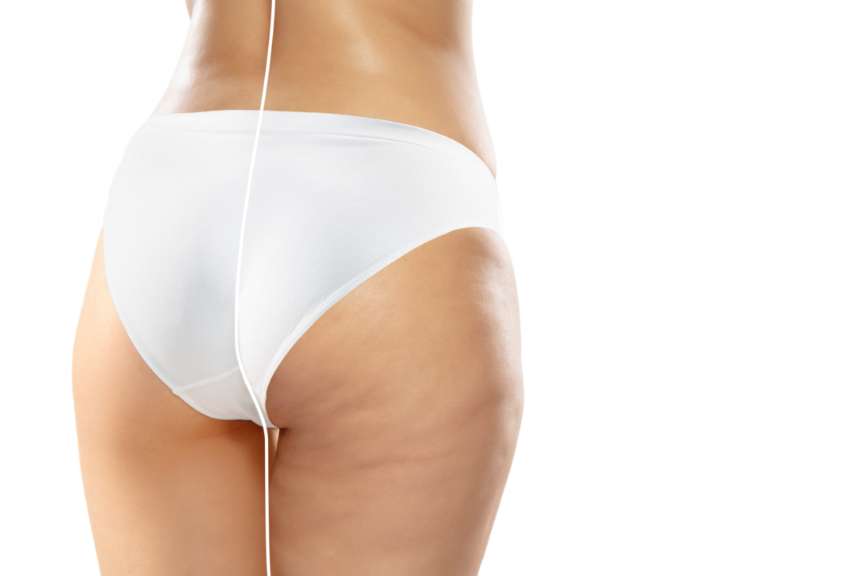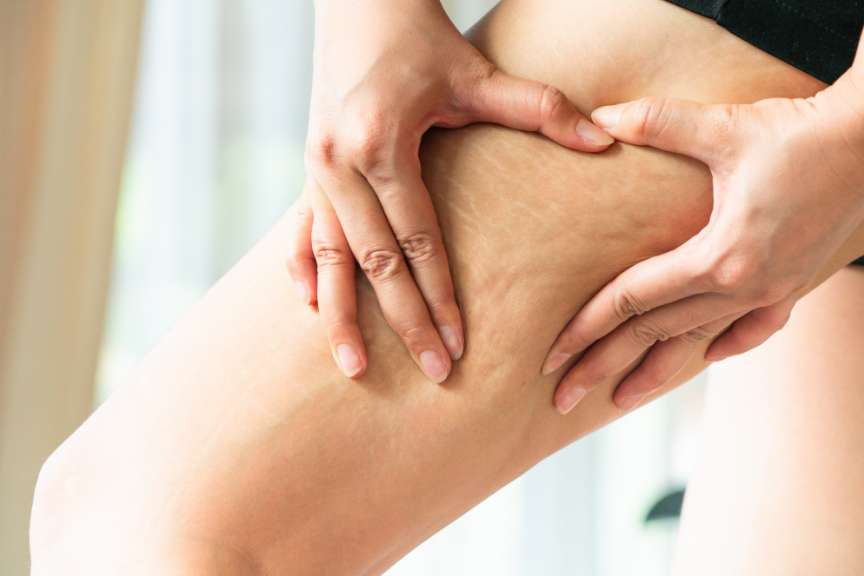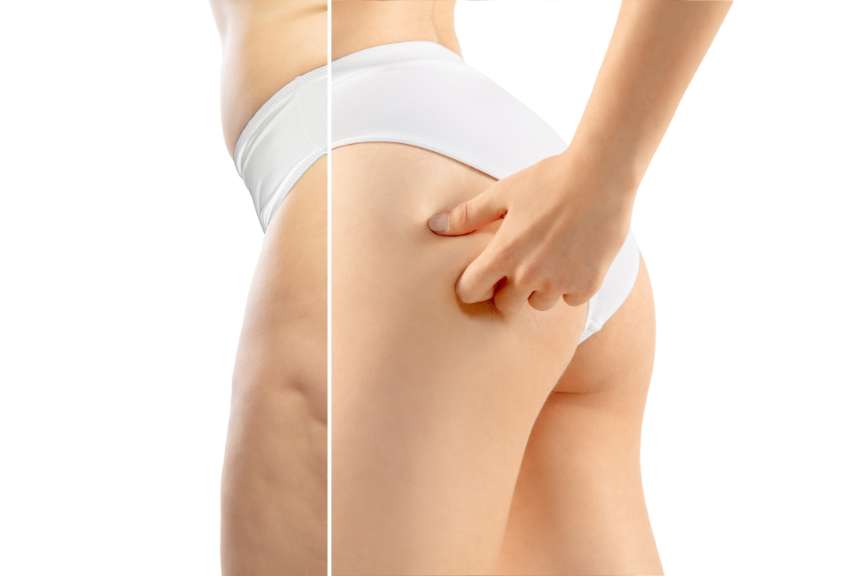
Many people who have cellulite dimples would prefer to get rid of them. But what is cellulite exactly? Cellulite, also known as cottage cheese skin or orange peel skin, is a common complaint among women and some men. While cellulite may make you feel self-conscious, it doesn’t pose a health risk.
Still, many people pursue treatments for cellulite to improve their looks and boost their self-confidence. Most of these efforts are fruitless or provide short-term results. But one procedure, Aveli cellulite treatment, has proven highly successful.
This article will look at the causes of cellulite, as well as its symptoms and treatments. We’ll answer questions like “Is cellulite fat?” and “How does cellulite form?” and provide some useful tips to deal with cellulite dimples.
Table of Contents
What Are Common Cellulite Symptoms?
The only symptom of cellulite is the telltale appearance of cottage cheese skin on a person’s thighs, buttocks and stomach. Cellulite dimples can be divided into four grades:
- Grade 0: You have smooth skin with no dimples.
- Grade 1: You have mild dimpling when you sit, but your skin appears smooth when you stand.
- Grade 2: You have moderate dimples, whether you’re sitting or standing.
- Grade 3: You have severe dimples, standing or sitting, and deep peaks and valleys appear on your skin.
Cellulite symptoms do not involve pain. If you have dimpled skin on your buttocks, legs or arms that hurts, feels cold, swells or bruises easily, you may have lipedema and should see a doctor.
What Causes Cellulite?
If you’re wondering, “Why do people get cellulite?” there isn’t a simple answer. The causes of cellulite aren’t clear. However, there appear to be some risk factors that correlate with the increased appearance of cellulite dimples. The most common risk factor is simply being female. Around 80% to 90% of women (compared to 10% of men) experience skin cellulite. Other potential issues include:
- An unhealthy diet
- Your metabolism rate
- Lack of activity
- Hormone changes
- Dehydration
Genetics also seems to play a factor since women are more likely to develop cellulite if their relatives have it.
Cellulite can appear more prominent as you age and your skin loses its elasticity. Weight can increase the appearance of cellulite, although the skin condition also affects thin people.

How Does Cellulite Form?
So, is cellulite fat? The basic answer is no. Cellulite forms when fibrous connective tissue bands called septa form under your skin and pull it down. There can be numerous septa connected to each dimple. While excess fat may make cellulite dimples more prominent, you don’t need to have fat for the dimples to form.
A theory about the connective tissue bands may explain the difference in the percentage of men and women who develop cellulite. In men, the fibers that make up these tissue bands are crisscrossed, while in women, they’re parallel. There’s some thought that the parallel orientation makes the dimples more pronounced.
Treatments for Cellulite
It’s possible to decrease the appearance of cellulite by doing things to help maintain your skin’s elasticity. These include maintaining a healthy body weight, staying hydrated, eating a balanced diet and exercising regularly.
But such efforts only affect the appearance of cellulite; they don’t actually reduce cellulite dimples. Treatments for cellulite reduction need to attack the connective bands of tissue that cause the dimples. Aveli cellulite treatment is an FDA-approved, minimally invasive procedure that identifies and severs each septa. Dimple removal occurs as each length of connective tissue is released.
Trust Your Cellulite Treatment to Dr. Adam Basner
Now that we’ve discussed cellulite causes, symptoms and treatments, you’re ready for the next step in your battle against the cellulite dimple: a consultation with Dr. Adam Basner, the board-certified Chief of the Division of Plastic Surgery at Sinai Hospital. Recognized as a Top Doctor by Baltimore Magazine and widely considered one of the best plastic surgeons in greater Baltimore, Dr. Basner has achieved fantastic success with Aveli cellulite treatment. Call 410-616-3000 today to schedule a consultation.
Related Articles
Guide to Aveli Cellulite Treatment
What Is the Best Cellulite Treatment?
Kybella vs. Neck Lift Surgery
- Category: Non-Surgical Treatments


